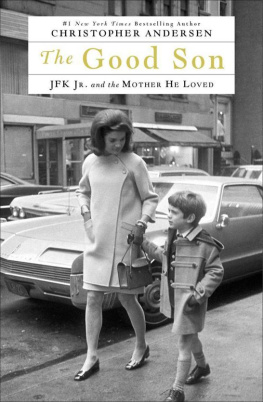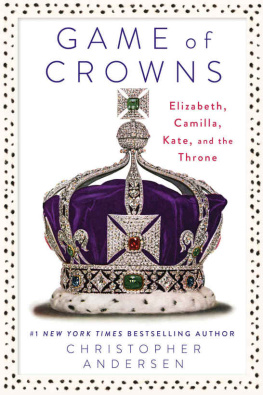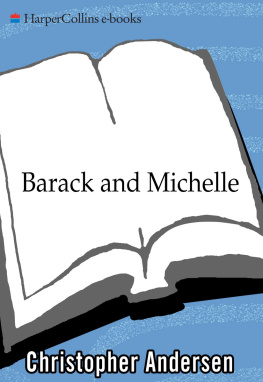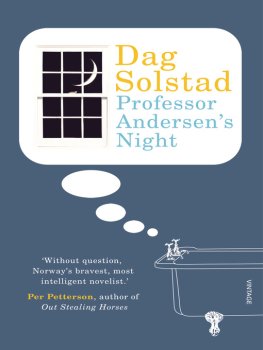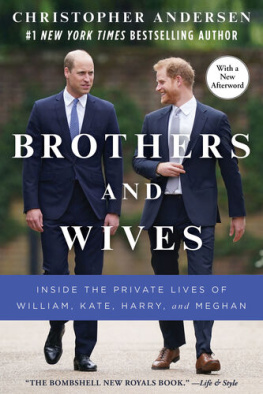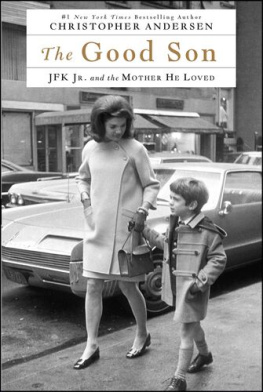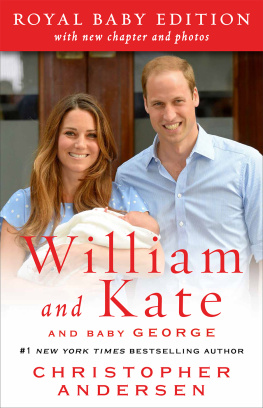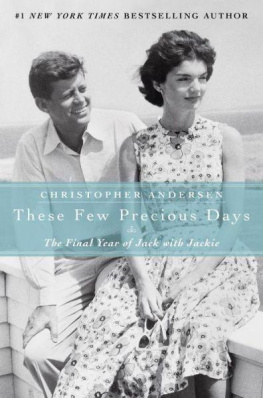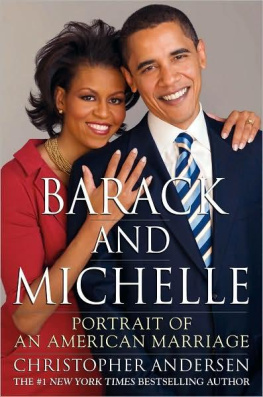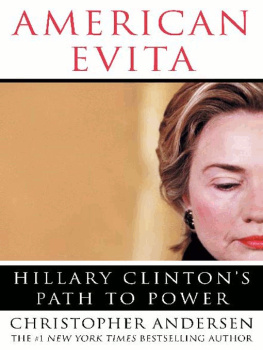Thank you for downloading this Gallery Books eBook.
Join our mailing list and get updates on new releases, deals, bonus content and other great books from Gallery Books and Simon & Schuster. CLICK HERE TO SIGN UP or visit us online to sign up at
eBookNews.SimonandSchuster.com People keep telling me I can be a great man. Id rather be a good one. J OHN

My John is such a happy little boy, you know. I think sometimes I worry about him too much. J ACKIE F OR MY GRANDDAUGHTER ,
C HARLOTTE B EATRICE B ROWER,
AKA C HARLIE
Contents
The whole world knew his name before he did. John seemed to belong not only to our family, but to the American family. T ED K ENNEDY
Preface
A Certain Gallantry
H e was the most brilliant star in the Kennedy firmamentthe only son of two figures who captured the worlds attention more than a half century ago and have yet to relinquish it. John Fitzgerald Kennedy Jr. would spend his entire life trying to come to terms with the worlds obsessive interest in the people he knew simply as Mummy and Daddyand its similarly obsessive interest in him.
For the rest of us, it was no mystery at all. As a dynamic, attractive, and impossibly glamorous couple living with their young children in the White House, Jack and Jackie Kennedy embodied all the hopes and dreams of the postwar era. When a snipers bullet brought a bloody end to it all, Americans realized that, however shocked and saddened they may have been for the nations loss, it paled in comparison to the burden his wife and children would bear.
In the days and weeks following Dallas, Jackies natural dignity and quiet strength were the glue that held a stunned and grieving nation together. Yet it fell to the little boy known throughout the world as John-John, whose mother well understood the enduring power of symbolism, to provide the most memorably heart-melting moment of all. With her eye undoubtedly on Johns future, Jackie bent down and instructed the three-year-old to deliver historys most famous salute as his fathers horse-drawn casket passed before himin that moment securing his place forever in the national consciousness.
At the time, young John was merely a supporting character in the larger narrative being spun by his mother. Terrified that her husbands time in the White House was too short for him to be remembered as a great president, Jackie concocted the myth of an American Camelot. Then she spent the rest of her life cultivating a personal mystique that, in the end, made her the most talked-about, written-about, speculated-about personality of her generationarguably the most celebrated American woman of the twentieth century.
Its hard to talk about a legacy or a mystique, John once observed. Its my family. Its my mother. Its my sister. Its my father. Were a family like any other. We look out for one another. The fact that there have been difficulties and hardships, or obstacles, makes us closer.
Carolines big-sisterly affection for John was certainly never in doubt. Nor was her role in the Kennedy family saga any less significant. Like her brother, high-spirited Caroline was one of the few remaining links to a more innocent and hopeful period in American historythe time before Vietnam, Watergate, AIDS, and the specter of terrorism. At dedications and graduations and weddings and funerals too numerous to mention, Caroline stood alongside her brother, sharing equally in the joys and the heartaches.
In the patriarchal world of the Kennedys, however, the heavy burden of expectation was Johns to bear alone. Starting with his wildly ambitious grandfather, Joseph P. Kennedy Sr., the men of each generation were expected to carry the dynastic torch forward. When Joe Jr. was killed on a bombing run during World War II, the torch was passed to Jack, then from Jack to Bobby, from Bobby to Teddyand on to the next generation.
For John, the pressure to follow in his fathers footsteps was an inescapable part of daily life. In JFKs absence, it seemed as if the entire world had stepped up to remind John more or less continuously that he was destined for political greatness.
John came to understand why so much was expected of him, but he also often wondered what, if Dallas had never happened, his larger-than-life dad would have wanted for him. In one grainy black-and-white television interview, JFK cautiously admitted that he wanted his son to enter politics because he had found public service to be both challenging and personally fulfilling. At the same time, the young president was quick to add, I want him to do whatever makes him happywhatever that is.
Johns mother was another matter entirely. No less a force of nature than her husband, Jackie also wanted her son to do whatever made him happyas long as he fulfilled what she firmly believed to be his destiny. Along the way, she urged him to take risks, to forge his own path, and to cherish his legacy without letting it overwhelm him.
I think the most interesting thing about him, John once said of his father, is that you realize he was just a man, that he lived a life, like anybody else. John did precisely thatliving his life to the fullest and on his own terms, with a kind of easy, unadorned grace born of a life spent entirely in the public eye. In the end, he eagerly embraced all that was expected of himand, in a move that might well have altered the course of U.S. political history, prepared to challenge one of the most formidable public personages of our time.
When she died of lymphoma in May 1994, Jackie took comfort in the fact that, unlike so many other members of their famous family, her children had escaped the famous Kennedy Curse. John believed it, too. During the five years that followed, it became clear that he, like his mother before him, shared in what Arthur Schlesinger called a certain gallantry.
In the end, John could no more escape his fate than his parents could escape theirs. His is a bittersweet boy-to-man saga of family, fate, love, loss, and promise unfulfilled.
It is the story of The Good Son.
P ART O NE
His Mothers Son
Please Dont Do It
July 16, 1999
I t was nearly 8:30 on this torrid Friday evening, and the sun was already sinking into the strange, yellowish haze that consumed the horizon. If he had left two hours earlier as originally planned, John F. Kennedy Jr. would have arrived at Marthas Vineyard in time to see Gay Heads majestic gray, white, and crimson clay cliffs standing in sharp relief against the darkening sky. Gliding over the cliffs, John and his two passengers in the Piper Saratogahis wife, Carolyn Bessette, and Carolyns sister Laurenwould all have been treated to a gulls-eye view of Red Gate Farm, the 474-acre estate that had been his mother Jacquelines true refugea Shangri-la of dunes, marshes, Scotch pines, and scrub oaks, bordered on one side by square-shaped Squibnocket Pond and on the other by 4,620 sandy white feet of private oceanfront.
Kennedy family friend George Plimpton called it a dream place, a sunlit place. Its hard to explain the effect it all had on youall the variations in color, water sparkling like diamonds everywhere you looked.
That had been the original planto leave Manhattan at 6:30 p.m. and be in the air by 7:15 so that John, who had yet to learn how to rely solely on his instruments, could fly under visual flight rules. John was accustomed to cutting things close, and given the Pipers cruising speed of 180 miles per hour, leaving at 7:15 would put them safely on the ground at Marthas Vineyard Airport well before nightfall. They would drop Lauren off with friends, and then make the quick hop over to Hyannis Port for the wedding of Johns cousin Roryall before Cape Cod, the islands, and the ocean that separated them were engulfed in darkness.
Next page
